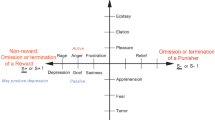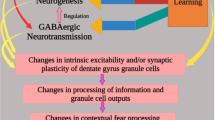Abstract
Studies examining adaptation to thermoregulatory challenges have shown that tolerance to hypothermia is mediated, in part, by associative (Pavlovian) learning mechanisms. This study examined whether acquired tolerance to deep body cooling (hypothermia) could be extinguished by conditions in which presentations of the environmental cues were presented in the absence of hypothermia treatment. The results of Experiment 1 indicate that five extinction exposures in which the context was presented alone were not sufficient to extinguish established hypothermia tolerance in rats. Experiment 2 demonstrated that tripling the number of daily extinction exposures from 5 to 15 also did not disrupt adaptation to cold, and further demonstrated that the presentation of a challenge condition (heat exposure) over the 15-day extinction phase of the experiment had no effect on established cold tolerance. Furthermore, Experiment 2 confirmed associative control of tolerance by demonstrating a context shift effect in resistance to cold. The lack of an extinction effect in these two experiments suggests that the environmental context may be acting as an occasion setter.
Similar content being viewed by others
References
FANSELOW, M. S., & GERMAN, C. (1982). Explicitly unpaired delivery of morphine and the test situation: Extinction and retardation of tolerance to the suppressing effects of morphine on locomotor activity. Behavioral and Neural Biology, 35, 231–241.
FREGLEY, M. J. (1953). Minimal exposure needed to acclimatize rats to cold. American Journal of Psychology, 173, 393–402.
HOLLAND, P. C. (1989). Feature extinction enhances transfer of occasion setting. Animal Learning & Behavior, 17, 269–279.
KISSINGER, S. C., & RICCIO, D. C. (1995). Stimulus conditions influencing the development of tolerance to repeated cold exposure in rats. Animal Learning & Behavior, 23(1), 9–16.
POULOS, C. X., & CAPPELL, H. (1991). Homeostatic theory of drug tolerance: A general model of physiological adaptation. Psychological Review, 98(3), 390–408.
RABINOWITZ, V. C., SECHZER, J. A., & DENMARK, F. L. (1992). Bias and generalization in the selection of human respondents for psychological research. Paper presented at the Xxv International Congress of Psychology, Brussels, Belgium
RAMOS, B. M., BUENO, J. L., & SIEGEL, S. (1996). Development of tolerance to the hypothermic effect of ethanol in conditional discrimination learning. Paper presented at the XXVI International Congress of Psychology, Montreal, Canada.
RESCORLA, R. A. (1986). Extinction of facilitation. Journal of Experimental Psychology: Animal Behavior Processes, 12(1), 16–24.
RICCIO, D. C., & CAMPBELL, B. A. (1966). Adaptation and persistence of adaptation to a cold stressor in weanling and adult rats. Journal of Comparative and Physiological Psychology, 61, 406–410.
RICCIO, D. C., MACARDY, E. A., & KISSINGER, S. C. (1991). Associative processes in adaptation to repeated cold exposures in rats. Behavioral Neuroscience, 105(4), 599–602.
SECHZER, J. A., RABINOWITZ, V. C., & DENMARK, F. L. (1992). Bias and generalization in the selection of animals for psychological research. Paper presented at the XXV International Congress of Psychology, Brussels, Belgium.
SHERMAN, J. E. (1979). The effects of conditioning and novelty on the analgesic and pyrectic responses to morphine. Learning & Motivation, 10, 383–418.
SIEGEL, S. (1975). Evidence from rats that morphine tolerance is a learned response. Journal of Comparative and Physiological Psychology, 89(5), 498–506.
SIEGEL, S. (1977). Morphine tolerance acquisition as an associative process. Journal of Experimental Psychology: Animal Behavior Processes, 3, 1–13.
SIEGEL, S. (1989). Pharmacological conditioning and drug effects. In A. J. Goudie & M. Emmett-Oglesby (Eds.), Psychoactive drugs (pp. 115–180). Clifton: Humana Press.
SIEGEL, S., HINSON, R. E., & KRANK, M.D. (1979). Modulation of tolerance to the lethal effect of morphine by extinction. Behavioral and Neural Biology, 25, 257–262.
SIEGEL, S., SHERMAN, J. E., & MITCHELL, D. (1980). Extinction of morphine analgesic tolerance. Learning & Motivation, 11, 289–301.
SWARTZENTRUBER, D. (1995). Modulatory mechanisms in Pavlovian conditioning. Animal Learning & Behavior, 23(2), 123–143.
Author information
Authors and Affiliations
Additional information
We thank Dr. Ralph R. Miller for calling our attention to the possible “occasion setting” role of context. The research reported here was supported in part by National Institute of Mental Health Grant MH37535 to David C. Riccio, and the care of animals was approved by Kent State University’s Animal Care and Use Committee (ACUC). Portions of this paper were presented at the 68th annual meeting of the Midwestern Psychological Association, Chicago, IL, May 1996. We also thank Rolando Toulon for helpful assistance with the data collection for this paper. Steven Kissinger is currently at California Lutheran University, Thousand Oaks, CA 91360.
Rights and permissions
About this article
Cite this article
Metzger, M.M., Harrod, S.B., Kissinger, S.C. et al. Is Acquired Tolerance to Hypothermia Susceptible to Extinction?. Psychol Rec 48, 33–44 (1998). https://doi.org/10.1007/BF03395257
Published:
Issue Date:
DOI: https://doi.org/10.1007/BF03395257




